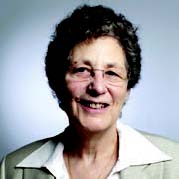 There is a quiet sea change happening that will affect every LGBT person in the nation, and it will change our lives for the better. Slowly but surely, federal, state, and municipal governments are initiating efforts to collect demographic data on sexual orientation and gender identity. This is happening thanks to the efforts of LGBT advocates. Until now, the lack of comprehensive data on our community has made it difficult to address both health and non-health issues, such as discrimination and health and economic disparities.
There is a quiet sea change happening that will affect every LGBT person in the nation, and it will change our lives for the better. Slowly but surely, federal, state, and municipal governments are initiating efforts to collect demographic data on sexual orientation and gender identity. This is happening thanks to the efforts of LGBT advocates. Until now, the lack of comprehensive data on our community has made it difficult to address both health and non-health issues, such as discrimination and health and economic disparities.
In 2013 the Department of Health and Human Services (HHS) announced the testing of gender identity demographic questions for their Behavior Risk Factor Surveillance System (BRFSS), which is the largest telephone survey in the world, and that sexual orientation questions would be included in HHS’s National Health Interview Survey.
In 2014 New York became the first state to initiate a statewide effort to collect and coordinate data on sexual orientation. Eight New York state agencies have begun to collect self-reported voluntary data on LGBT people who use their services. Make no mistake, the collection of data on LGBT people by HHS and New York State is just the beginning. More federal agencies, states and municipalities will make similar decisions. The impact of such efforts will improve health and social services for every LGBT person.
In January of this year, the San Francisco Health Commission approved the City’s first systematic sexual orientation and gender identity guidelines. The policy, developed after two years of research, sets out clear guidelines for collecting, coding and reporting LGBT data. This policy will allow the Department of Public Health to better identify and address health problems in LGBT communities.
The San Francisco LGBT Aging Policy Task Force, in their final report, recommended requiring all city departments to collect data on LGBT people and that senior service providers be required to be trained in LGBT cultural competency training. This month, representatives from Supervisors Wiener and Campos met with representatives from the City Attorney’s office and three city departments to discuss next steps in translating the Task Force’s recom-mendation on data collection into a city ordinance. The Department of Public Health’s guidelines were discussed as a model for citywide policy.
Can the state of California be far behind?
Dr. Marcy Adelman, a clinical psychologist in private practice, is a co-founder of the non-profit organization Openhouse and was a leading member of the San Francisco LGBT Aging Policy Task Force.
Recent Comments